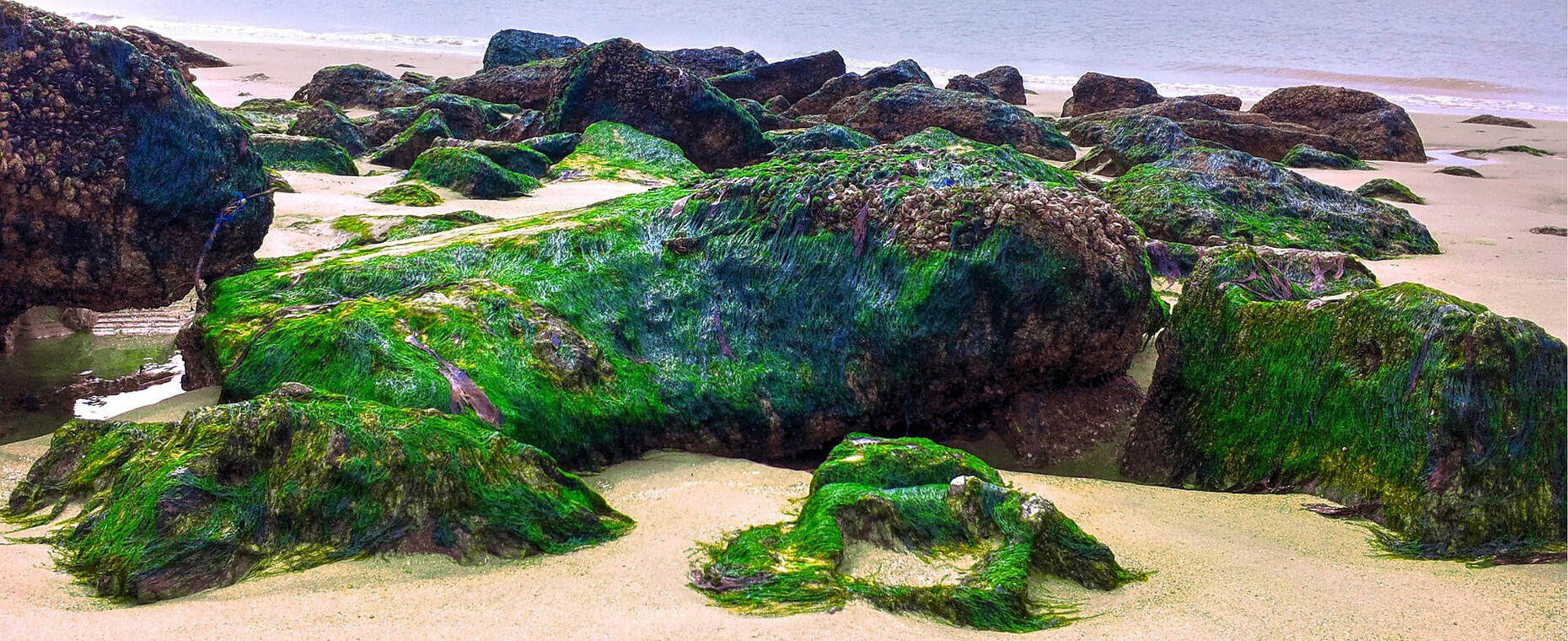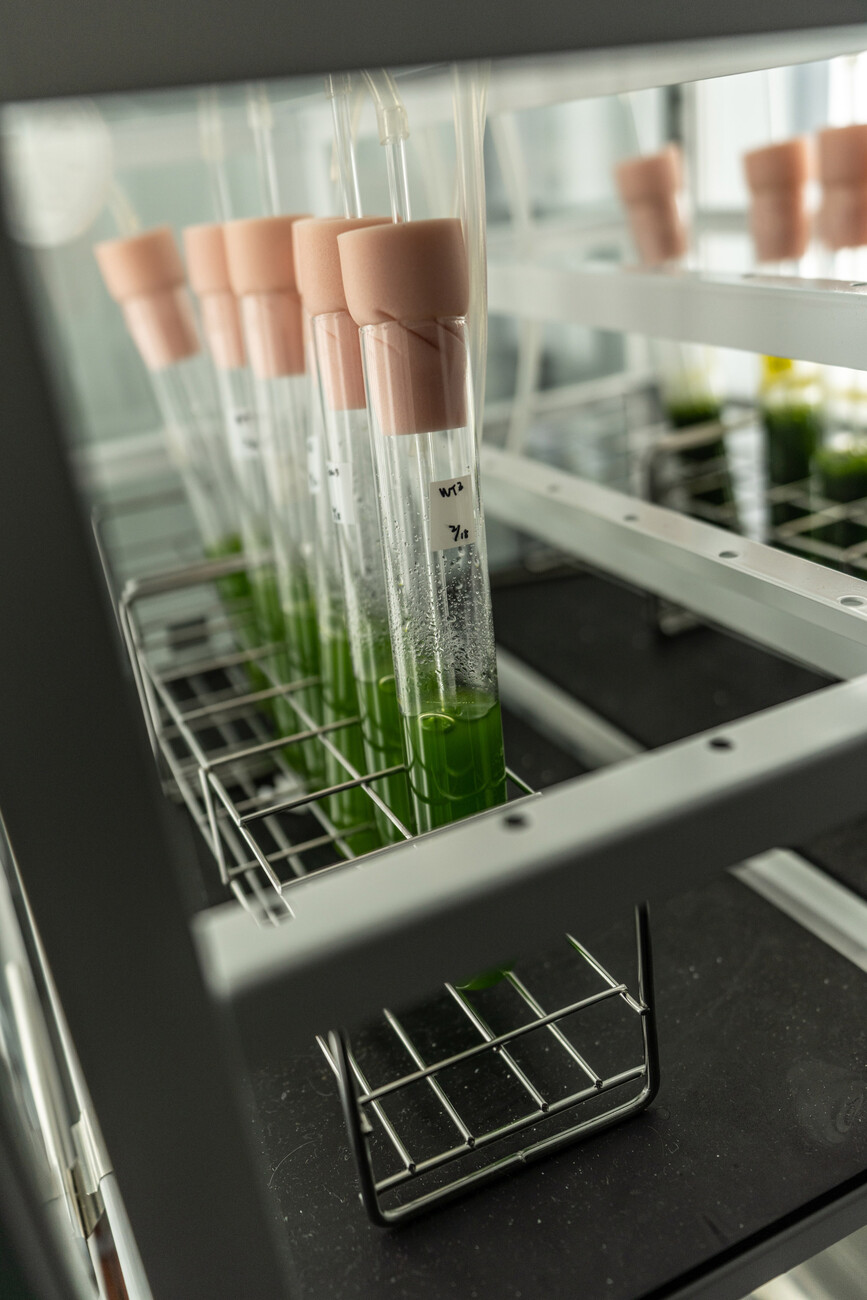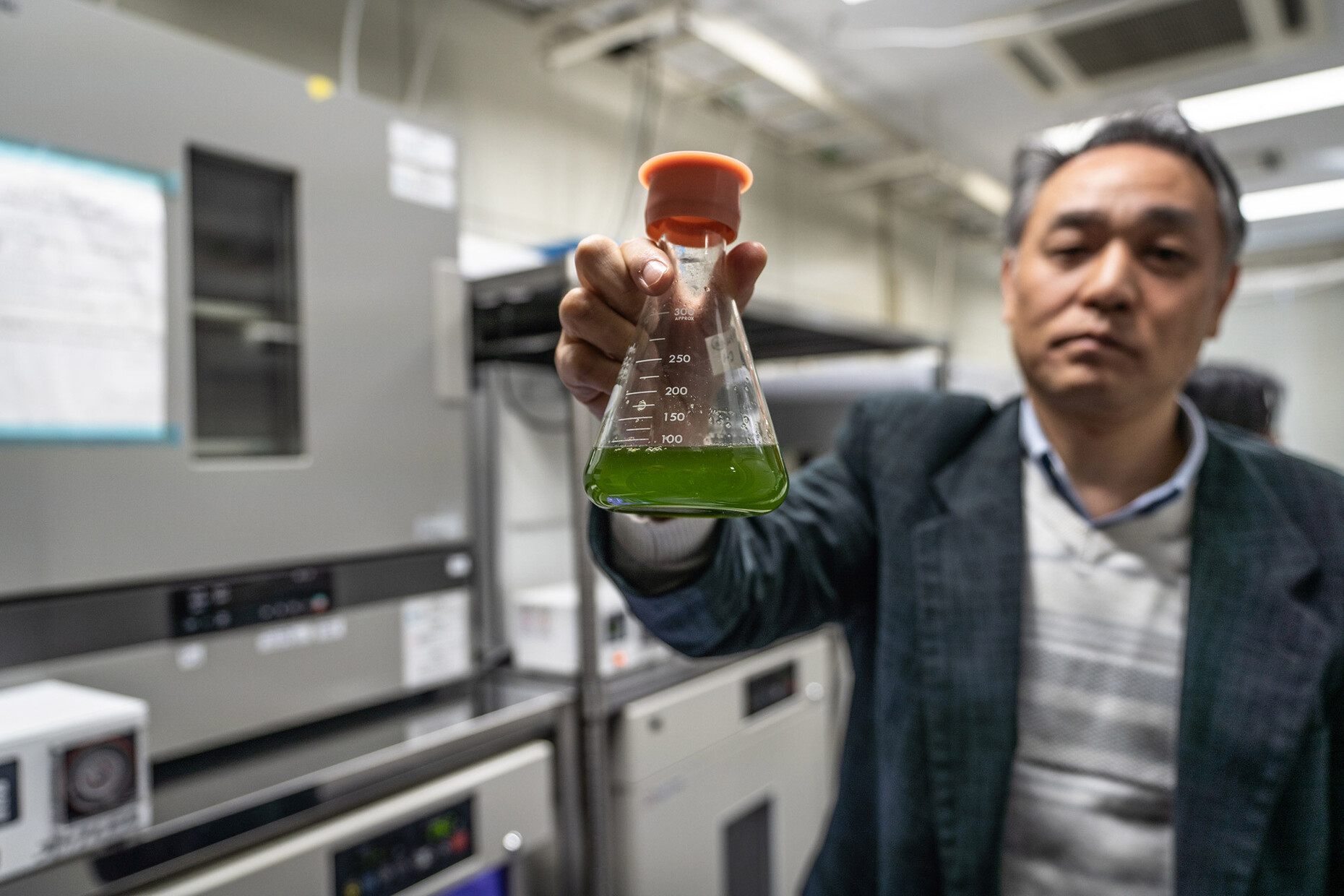MOBILITY
Algae instead of diesel
Microalgae are no longer an insider tip for the human diet. They contain important nutrients and are considered extremely healthy. But the marine plants could also provide an alternative to fossil fuels for cars. For this reason, Mazda has been supporting research projects at Hiroshima University and the Tokyo Institute of Technology since 2016 to develop a liquid fuel from microalgae. Native to the ocean for billions of years, they store solar energy as sugars and fats. With their low flash point, the algae fats could provide the basis for a biofuel with similar properties to diesel.
In order to be able to process the algae particularly efficiently, scientists are currently working on cultivating algae with a high fat content showing a positive energy balance. They are cultivated in bioreactors with salt water so as not to trigger any unnatural interference with the biosphere. Unlike other plant-based biofuels, the cultivation of microalgae is not competing with other forms of agriculture and does not require fresh water. This sets the fuel apart from other attempts to replace fossil fuels with vegetable oils. Examples of this already exist not only in the automotive industry but also in aviation: in 2008, the British airline Virgin Atlantic conducted a test flight from London to Amsterdam using pure biofuel made from coconut and babassu palm oil. Critics complained that the oil was sourced from rainforest and plantation crops.
Renewable resource
In contrast, the microalgae is a renewable raw material, Mazda emphasizes. When burned, it releases only as much CO2 as was previously extracted from the atmosphere by the growth of the algae through photosynthesis. As a result, the company says it could achieve CO2 neutrality for vehicles with internal combustion engines. The possibility that diesel vehicles could run on a fuel made from algae is already being tested. Whether and when it will be available at the gas pump has not yet been determined, as research is not yet far enough advanced to make this a reality.
The innovation is part of Mazda's sustainability strategy. Compared to 2010, the vehicle manufacturer aims to reduce CO2 emissions by 50 percent till 2030 and by 90 percent till 2050. This takes into account carbon dioxide emissions from fossil fuel from oil source to road use, as well as electricity generation for electric vehicle consumption.












